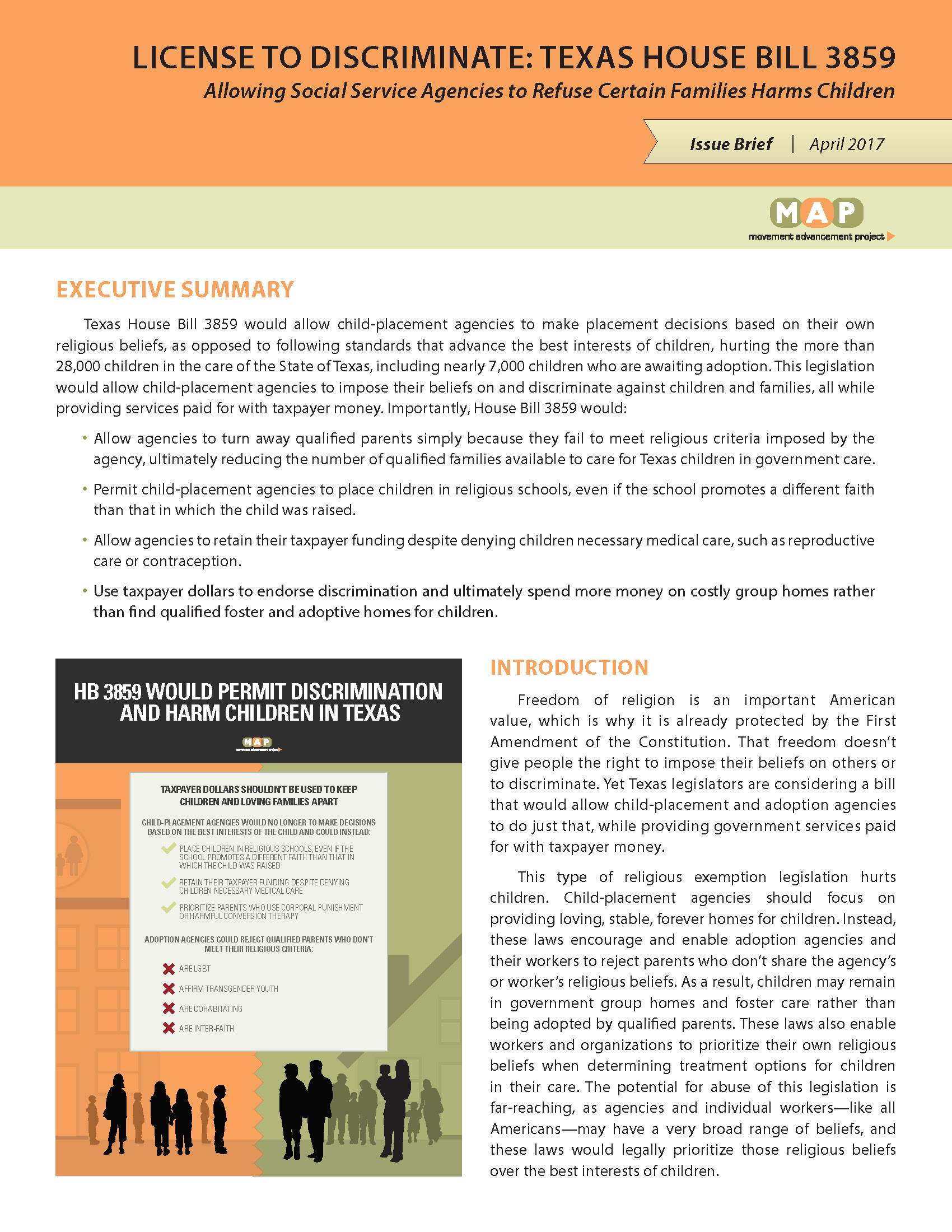The Bottom Line
Texas House Bill 3859 would allow child-placement agencies to impose their beliefs on and discriminate against children and families while providing taxpayer-funded services. Agencies would be allowed to make placement decisions based on their religious beliefs, hurting the more than 28,000 children in the care of the state, including nearly 7,000 children awaiting adoption.
License to Discriminate: Texas HB 3859Download
Recommended citation:
Movement Advancement Project. April 2017.
License to Discriminate: Texas HB 3859.
https://www.lgbtmap.org/texas-house-bill-3859 (date of access).


